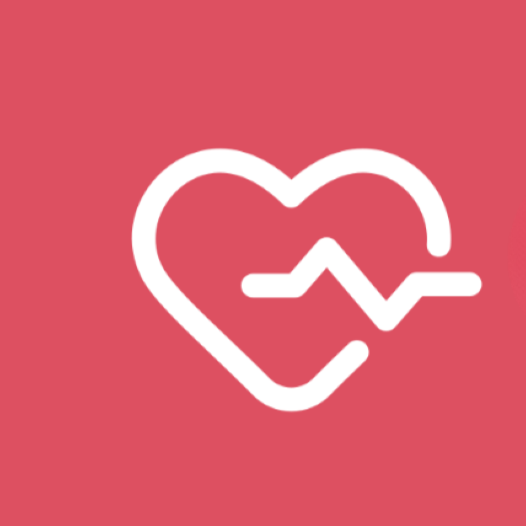If you or a loved one is facing cabg heart bypass surgery, understanding what lies ahead is crucial. Commonly known as ‘bypass surgery,’ its medical term is coronary artery bypass grafting (CABG). This lifesaving procedure addresses blocked coronary arteries to improve blood flow to the heart.
Undergoing cabg heart bypass surgery is not a decision made lightly. It can significantly improve your quality of life by reducing symptoms like chest pain, increasing your ability to be active, and in some cases, even saving lives. But it also entails a comprehensive preparation process to ensure the best possible outcomes.
Preparing for cabg heart bypass surgery is multifaceted, involving steps to get your body, mind, and environment ready for the procedure and recovery. Read on as I guide you through essential preparations, from health assessments to adjusting your lifestyle in the lead-up to the operation.
You may find the post, “Preparing For A Cabg Heart Bypass Surgery” to be helpful, as well.
Assessing Your Health and Risks

Before you go under the knife for cabg heart bypass surgery, it’s critical to take a step back and evaluate your overall health and the risks involved. This isn’t a process to rush; thorough preparation can make a significant difference in your surgery’s outcome.
First up, you’ll need to schedule a comprehensive medical examination. Your doctor will want to get an up-to-date snapshot of your health. This could involve a variety of tests, ranging from blood work to non-invasive heart monitoring.
Now, let’s talk risk factors. If you have a history of heart disease, high blood pressure, or diabetes, managing these conditions is top priority. Your doctor will provide guidance on how to best control them prior to your surgery.
Regular consultations with your healthcare provider are part of the drill. It’s your chance to get clear on what the surgery entails and address any concerns or questions you may have. Being well-informed is a BIG part of preparing for surgery.
Physical and Lifestyle Preparations

Preparing for heart bypass surgery goes beyond hospital arrangements and consultations; it also involves making significant changes to your physical habits and lifestyle well in advance. I’ll guide you through the essential steps to prepare your body and mind for the operation.
Diet plays a pivotal role in your health, especially when facing major surgery. I’ll underscore the need to eat a balanced diet, rich in fruits, vegetables, and lean proteins, and why it’s crucial to minimize the intake of fats, salt, and sugars.
Exercise is just as important. While you may need to take it easy, I’ll discuss the benefits of light aerobic exercises, such as walking or swimming, as approved by your doctor. Engaging in mild physical activities can enhance your circulation and overall fitness, which can lead to a smoother surgical experience and recovery.
If you smoke, STOP. Smoking can hinder your recovery and increase the risk of complications. I’ll highlight resources and strategies to help you quit and explain the immediate health benefits of stopping pre-surgery.
Alcohol can also interfere with your surgery and recovery. I’ll clarify why you should limit alcohol consumption or avoid it altogether in the weeks leading up to surgery.
Lastly, if you’re on medication for other conditions, it’s imperative to revisit your prescriptions with your healthcare provider. They may need to adjust dosages or provide alternatives that won’t conflict with the surgery or the medications you’ll be given during your hospital stay.
As you embrace these physical and lifestyle adjustments, you’re also likely to encounter emotional challenges. In the next section, I consider ways to strengthen your mental and emotional resilience as surgery approaches.
Mental and Emotional Readiness

Facing heart bypass surgery isn’t just a physical challenge; it’s a mental and emotional one as well. I understand the swirl of emotions you may be feeling: anxiety, fear, perhaps even a bit of denial. It’s crucial to address these feelings, as they can affect your recovery.
Stress management before surgery can play an important role in your overall outcome. Engaging in relaxation techniques such as deep breathing exercises, meditation, or gentle yoga can be effective. These practices don’t just prepare you for surgery; they’re skills you can carry into recovery.
Reaching out for enotional support is also key. Talk openly with family and friends about your concerns. Their understanding and encouragement can be a lifeline during challenging times. Don’t hesitate to connect with a counselor or therapist if you feel overwhelmed.
Being mentally and emotionally prepared helps smooth the transition into the critical recovery phase. Post-surgery, you’ll be faced with physical limitations and the need for rest and rehabilitation. Having previously established coping strategies in place makes this adjustment much easier.
The Road to Recovery

After heart bypass surgery, your journey to recovery begins. It’s important to set realistic expectations for this healing process. Initially, you’ll spend time in the hospital under close observation to monitor your progress.
Upon discharge, make sure you have a detailed care plan in hand. This plan typically includes instructions on wound care, activity levels, and any necessary medication alterations. Adherence to this plan is crucial for preventing complications and ensuring a smooth recovery.
Lifestyle changes may also be part of your recovery. Embrace these changes positively as they’re geared toward your long-term health and preventing further heart issues. You might need to adjust your diet, incorporate regular physical activity, and attend cardiac rehabilitation sessions.
Follow-up appointments with your healthcare team are key components of the recovery process. These visits allow your doctors to assess your heart health, make any needed adjustments to your treatment, and provide the support you need. Keep an OPEN DIALOGUE with your healthcare provider about any concerns or symptoms you experience.
Finally, remember that each person’s recovery is unique. Allow yourself the patience and time to heal properly. Lean on your support system—family, friends, and support groups can provide comfort and assistance, ensuring you’re never alone in your recovery journey.

